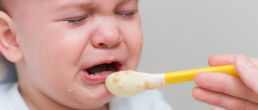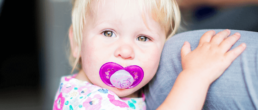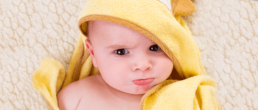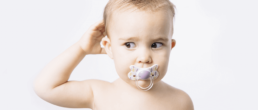Is It Normal for My Baby to Reject Me?
0 Comments2 Minutes
Yes, it's quite common for babies to sometimes ignore a parent. Your newborn baby learns to recognize your face, and when you smile, for example, for a period of 6 to 8 weeks, you…
What can you do if your baby doesn’t like his/her crib?
0 Comments2 Minutes
The fact that babies do not like to sleep in the cradle is a common situation, according to what parents say. But what's unclear is whether babies don't want to sleep in cribs…
Why do Babies Cry?
0 Comments3 Minutes
If your baby is crying, he probably wants to tell you something. Crying is the way babies report that they are hungry, tired, uncomfortable, or exposed to too many stimulants that…
My baby is very dependent on his/her pacifier, what should I do?
0 Comments4 Minutes
My baby is very dependent on his/her pacifier, what should I do? Your child's distress is certainly not serious. Still, it is not ideal to leave the pacifier for a long time. When…
Routines for a Happy Baby
0 Comments7 Minutes
At the Beginning When you bring a newborn home, life becomes blurred. Your baby's day and night can be reversed, and your life can be chaotic. Therefore when you can sleep, you…
Is It Normal for My Baby to Look to Seem Irritable?
0 Comments3 Minutes
Bebeğimin Sinirli Görünmesi Normal mi? Is It Normal for My Baby to Look to Seem Irritable? Yes. Even newborns can become angry if they wake up hungry and are not fed immediately.…
Is It Normal for My Baby to Watch His/Her Hands?
0 Comments2 Minutes
Is it normal for my baby to look at his/her hands? Yes, if it is a small baby, this is normal, says Child Life New Year's Editor Tania Remer Altmann, “Starting at about 2 months,…
Signs of a Happy Baby
0 Comments3 Minutes
Signs of a Happy Baby Signs of happiness can be more mysterious in infants than unhappiness. The baby may not even find the first true happiness milestone by smiling until the end…
My Baby Pulls Her Own Hair What Should I Do?
0 Comments3 Minutes
What should I do if my baby is pulling her own hair? If you notice your baby pulling her own hair, eyelashes, or eyebrows, it wouldn't be right to say something specific like ''…
Why Do Babies Spit?
0 Comments6 Minutes
Why Do Babies Spit? Why does my baby spit so much? He's probably just trying to feed. And she's not alone: almost half of young babies spit. The spitting interval is the first 4…
- 1
- 2










